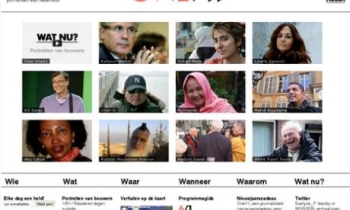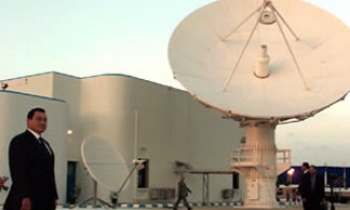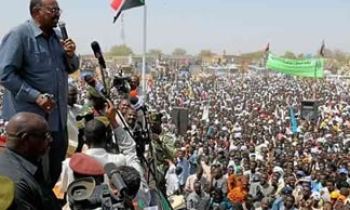LONDON: In one corner, media titan Rupert Murdoch with his tight grip on pay-TV in Britain. In the other, airline and music entrepreneur Richard Branson, keen to expand his empire by taking some of Murdoch's territory.
In the middle are millions of pay-TV viewers who have been deprived of some of the most popular programs on TV.
The battle between British Sky Broadcasting Group PLC — 39 percent owned by Rupert Murdoch's News Corp. — and Branson's Virgin Media is one of the most public media dust-ups in Britain for decades.
The two companies are ostensibly arguing about program pricing, a dispute that led to several of Sky's channels being yanked off Virgin's cable service last week after they failed to reach a deal. But analysts said the argument is really about the future of the lucrative pay-TV industry in Britain.
Branson and Sky Chief Executive Officer James Murdoch — Rupert's son — have both gone on the offensive in the domestic media in recent days, with Branson accusing Sky of "bullying," and Murdoch contending that Virgin is playing the "victim" to win public sympathy.
"There are big issues at stake and these are big characters," said Ivor Gaber, a research professor in media and politics at the University of Bedfordshire, of the tough public exchanges.
"That is the style of the men involved," Gaber added. "(Rupert) Murdoch is seeing a new challenger and is trying to see him off, while Branson also has a big ego and doesn't like to lose."
BSkyB has long dominated pay-TV in Britain, leaving cable providers in the shade. But the arrival of Virgin Media — the result of a recent merger between the two main cable providers NTL and Telewest — has threatened a shakeup of the status quo.
Branson became involved when the merged NTL:Telewest bought the British operations of Virgin Mobile late last year. Branson became the cable company's largest single shareholder in return for licensing the Virgin brand name.
A consummate publicity operator who has jumped out of planes and climbed astride elephants to promote his Virgin Atlantic Airways, Branson moved quickly to improve Virgin Media's profile, beginning talks with commercial broadcaster ITV PLC about a potential merger.
Apparently sensing danger, BSkyB swooped in and snapped up a 17.9 percent stake in ITV, blocking any possible move on ITV by Virgin Media.
Aside from angering Branson, that maneuver has raised red flags in government offices about the level of influence held over the British media by Rupert Murdoch.
Trade and Industry Secretary Alistair Darling last month asked for a preliminary report into whether the deal is against the public interest.
The so-called "public interest test" triggered by the government is designed to allow it to block mergers deemed potentially damaging to the plurality of the domestic media. In addition to its stake in BSkyB, Murdoch's News Corp.'s British subsidiary also owns The Sun, News of the World, The Sunday Times and The Times newspapers.
In a separate inquiry, the government's Office of Fair Trading, is examining the deal's effect on competition.
Meanwhile, the two companies — and their bosses — continue their public spat.
Branson has accused the government of being "scared stiff" of Rupert Murdoch and ran ads on the now defunct Sky channels on the Virgin service telling viewers that "Sky has taken its ball and gone home," while James Murdoch has blamed Virgin's tactics for Sky "being dragged into the mud."
Gaber said that Branson's exploitation of the underdog factor could win public support, particularly as he is a "much more user friendly operator than Murdoch."
Whether that means viewers left without programs such as "Lost," "24," and "The Simpsons," and soccer fixtures will stand by him is another matter.
Branson says Virgin has retained viewers despite the dispute, but BSkyB is now advertising cheaper triple-play — pay-TV, Internet broadband and telephone — services to Virgin Media customers. It's also promised to reschedule a whole weekend of programs just for Virgin Media viewers who have missed episodes of their favorite shows.
Murdoch has employed similar predatory pricing strategies before with his newspaper empire, most notably with The Sun, to successfully see off competitors.
Media analysts say the Murdoch empire is big enough to absorb the costs of cutting programming to Virgin, and say the long term loser is almost certainly likely to be Virgin Media because it lacks the content for its cable service.
Yet, Gaber points out that Branson, like Murdoch, doesn't like losing big battles and has a track record to prove it.
Branson ran into major resistance from British Airways PLC when launching his trans-Atlantic airline Virgin Atlantic Airways, but eventually won out.
"It's difficult to see how it will play out," said Gaber. "Each man might have advisers telling them to cut their losses, but they've made it very difficult to reach a compromise."









